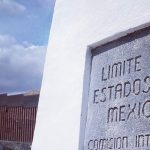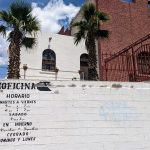Listening with Open Hearts: Reflections from a Border Trip (Part 2)
The last week of June, Women of Welcome (WoW), a community dedicated to diving into the whole of scripture to understand God’s heart for the immigrant and refugee, led a trip to the U.S.-Mexico border, hosted by Abara, with a group of 15 women. During the trip, these women heard testimonies and stories from people who live and work on the border serving immigrants and refugees. We asked a few staff members and participants to share a little about their experience. This is part two of the three part series.
Raquel Kyle’s Reflection
I wasn’t completely prepared for what I experienced.
I thought I would be. I have been aware of the refugee crisis and problems with our immigration system since 2015. A year and a half ago I stepped into a role of building a community of women who welcome the sojourner. I’ve read the stories, heard the sound bites, listened to policy analysts, and made the phone calls to my congresspeople about the issues at our Southern Border. I thought I was well-versed in the realities of what is going on at the wall where U.S. soil meets Mexico’s, though I had never actually been.
Hearing the stories of migrant women who are risking everything to pursue safety for the child inside their womb changed me. Looking into their eyes 4 feet away from mine changed me. Touching the 18-foot iron fence with my own hands as the child on the other side asked me my name in their best English changed me. I should have known. It was a similar experience of locking eyes with a refugee sitting across from me in 2015 in a resettlement community in Clarkston, GA that first flipped my heart upside down for the sojourner.
The change wasn’t a change of direction. My foundation for welcoming the stranger is compelled by my faith. I raise my voice for the unheard because of my deep conviction that migrants are the Imago Dei and God deeply cares about them. I knew that we need immigration reform, the lack of access for most, and how the cartel prey upon vulnerable migrants. The change was that of a new uplifted truth in my heart.
The phrase that kept popping into my head as I walked along the border fence was, “This is our soil. This is our problem. Our hands are already dirty in this”.
We often go on missions/humanitarian trips to foreign lands where we see their humanitarian issues and can easily think, “Oh, this is their government’s problem. How can we respond?”. But. This is OUR soil. These are OUR policies and systems at work. So how do we work to change them?
It is because of the realities our nation’s leaders have created that I witnessed a migrant family climbing out of the Rio Grande River in broad daylight to approach a Border Patrol truck, obviously trying to request asylum. An image I will never forget. It is because of our current policies that pregnant women are waiting in a migrant shelter in Ciudad Juarez to present their asylum cases of fleeing violence, and who knows how long they will have to wait.
Yes, it’s complicated. There are other nation’s issues at hand, hence what these people are fleeing from. But we must not ignore our responsibility to provide dignifying treatment as migrants give up everything to make it to the Land of the Free and the Home of the Brave.
A new zeal for prayer, advocacy, and relationship was instilled as the realities of our Southern Border migrated deeper into my heart and understanding.
Something else was instilled in my heart during this trip- hope. We were delighted to bring 15 women to the border- all leaders in their respective fields of faith and education. I sat beside these women as they learned, asked questions, wrestled with the stories, and witnessed the same accounts that I did. I know that I wasn’t the only one whose heart was changed. Witnessing the work of the Spirit soften hearts and bring compassion gave me hope for the American Church. These women held degrees, status, and titles. They had every right not to budge in their views, yet that isn’t what happened. They allowed themselves to move into the process and to lean into hard conversations.
Most of them just didn’t know what was really happening at our border. But they’ve allowed the reality to change them.
I am full of hope. Our work must go on. For the sake of God’s beloved, we must shed light on the truth and raise the voices of those unheard.
Raquel lives in Tulsa, Oklahoma. She is the project coordinator for Women of Welcome and a community liaison for We Welcome.






